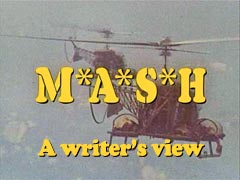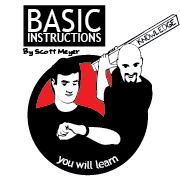The estimable L. Jagi Lamplighter is featuring my new essai ‘Life, Carbon, and the Tao’ on her Superversive blog. Part 1 is now up; part 2 to follow next week.
Ozamataz
I have spent the last week or so (when not sleeping off my medications) in a fairly continuous process of brainstorming, chewing over several new-to-me ideas and figuring out how to turn them into actual writing techniques.
I forget exactly what prompted me to revisit the Key & Peele skit I reposted some time ago, in which the duo performed a thorough piss-take on the silly (and often self-inflicted) names one so often sees among American football players. Of all the daft monikers they introduced to the world, one in particular seems to have caught the public imagination: ‘Ozamataz Buckshank’. The name Ozamataz has been ‘repurposed’ for any number of online game characters and social-media personas. I think part of the reason lies in the delivery: in the original skit, the name was pronounced in a drawl reminiscent of Jimmy Stewart. It is, in fact, a fun name to say aloud, and I think that contributes to its popularity. But there may be more to it than that. A name like ‘Jackmerius Tacktheritrix’ or ‘Javaris Jamar Javarison-Lamar’ is too Pythonesque, too blatant in its silliness, to have much staying power. ‘Ozamataz’ is almost, but not quite, realistic; it could plausibly be an actual word.
And so, hearing the name again, I asked myself: If ozamataz were a word, what would it mean? [Read more…]
Calvin and Hobbes on writing
Hat tip to Malcolm the Cynic.

There are two kinds of people involved in this game, whether as writers, readers, or what have you: Those who agree with Calvin, and those who wish to use writing as an actual means of communication. Which is as much as to say that there are parasites, and there are hosts.
Speaking of Malcolm the Cynic, he has an interesting piece up on Superversive SF: ‘Fixing the Abrams Star Trek Movies’. Very much in the vein of what I did with elements of the Star Wars prequels in ‘Creative discomfort and Star Wars’. I like his take on the Abrams Trek reboot very much.
It’s not ALL about the seat of the chair
Now that our Evil Alter Blogger has had his say about those who sneer at prolific writers, I figure it’s time for me to say something on the matter in propria persona. Herewith, I reproduce a comment I made over at the Passive Voice, which the gracious Carbonel thought well of.
One Scath muses aloud:
I’ve been earning a living as a writer releasing 2 books per year. Wonder what will happen if I up that to 4 per year?
I respond:
Either (a) you will more than double your income, because you are attracting more readers and have twice as many products to sell to each one; or (b) your income per book will suffer because you are rushing yourself to meet an arbitrary production schedule, and not giving the ideas long enough to cook. Or some combination of the two effects. It depends entirely on you and your internal process.
Like most writers I know, I find that the process of coming up with good story ideas is not one that happens solely whilst one is applying the seat of the trousers to the seat of the chair. I can usually come up with enough stuff in twenty-four hours to keep me busy at the keyboard for four or five hours writing it down. I find that if I force myself to spend more hours at the keyboard, I often end up forcing out rubbish just to fill up the time.
Of course everyone’s mileage differs; but that ought to be the real lesson – everyone’s mileage differs. There is nothing inherently wrong with having the fixings in your mind to make one decent book per month, or one per quarter, or one per year, or one per lifetime. (Very few of us can manage one per month. That much time at the keyboard leaves very little time for having enough of a life to feed a fluent stream of new ideas.) The only thing that is unequivocally wrong is trying to base your schedule on someone else’s idea of how much you should write.
If Patty Pretentious says you should write only one book every ten years and it will be a literary masterpiece, she’s almost certainly wrong. If Harry Hackworthy says you should crank out a book every two weeks, just as fast as your fingers can type the words, he is almost certainly wrong. If Sammy Statistics says you should write 1.21 books per year because that is the aurea mediocritas at which the average Great Writer writes the average Great Book, he is almost certainly wrong. Writers, especially great ones, cannot be aggregated in that way.
There’s a reason why Polonius did not say, ‘To the Huffington Post’s own self be true.’ Or even, ‘To thy critique group’s own self be true.’
Advice on writing Great Literature
In a discussion at The Passive Voice, one Lorraine Devon Wilke was mocked for ordering writers, ‘Do NOT write four books a year.’ She offered, as an exemplar of Good Writing, Donna Tartt, who took eleven years to write The Goldfinch. Among many other responses, Ed Ryan offered this:
I’m a math idiot so bear with me. Let’s assume (so I don’t have to look it up) the ‘masterpiece’ in question is 100k words long.
11 years means 10,000 words per year (ok that’s 110,000, see how lazy I am?)
10,000 words per year/ 365 days per year us a blistering 27.3 words per day.
We can pretend this hardworking visionary took days off from that grueling schedule and slaved over the novel for a mere 200 days each of those 11 years – an electric 50 word per day pace.
If the author rewrote the book 10 times the average jumps to a staggering 500 words per day. Being generous that’s 60 minutes of work per day.
I only hope the other 23hrs were relaxing.
Our Evil Alter Blogger responds:
Don’t be silly.
If you want to become a Major Literary Figure, you have to spend the other 23 hours in a constant flurry of activity. Hanging out in seedy Left Bank cafes, drinking absinthe with deranged expatriates. Being addicted to hard drugs. Cultivating interesting but debilitating mental illnesses. Pursuing weird sexual kinks in wildly unorthodox ménages. Kissing the bums of some of your fellow verminous literary lions, and fighting lifelong feuds with others. Going into rehab. Getting out of rehab. Writing angsty pseudo-philosophical anecdota about what you learned in rehab. Forgetting what you learned in rehab so you can repeat the process. I tell you, it’s a busy and thankless life.
The ideal literary author will write ONE book, and spend the rest of his life (it is preferably a he; if a she, she should go into pop music instead and aspire to be Amy Winehouse) desperately striving to live fast, die young, and leave a corpse that may not actually be good-looking, but will at least furnish material for hundreds of Ph.D. theses by twitterpated would-be academics.
You see, that is the ultimate goal of Literature. It’s all about the doctoral theses. Authors and books are just a necessary nuisance along the way.
(signed)
H. Smiggy McStudge
Revenge of the Forbidden!
Sarah Dimento, our Esteemed Cover Artist, offers some thoughts on her trade:
Your Generic-Ass Cover Makes Me Think There’s a Generic-Ass Book Inside
And in a heroic attempt to rid the world of generic-ass titles in the form ___ of ___:
The Cliché Fantasy Title Generator
Generate your own stupid fantasy title! Use at your own risk! Yes, you too can come up with classic titles at the touch of a button. Titles like:
Revenge of the Forbidden
Wizards of Evil
Evil of Wizards
Evil of Evil
and the ever-popular Arthurian saga:
Nightmare of the Round Table
Which ought to be the name of a book about a zombie King Arthur. Alas, there is a book (or at least a comic) that appears to be about a zombie King Arthur, or at any rate a zombie-killing King Arthur. It’s called Dead Future King, which is clearly the Wrong Title, because it has not got an of in it.
Fear, Uncertainty, and Doubt
I confess that I am unsure whether I should continue my posts on M*A*S*H, or whether I should just keep my notes to myself and take the existing posts private.
On the one hand, I seem to have found the perfect method for making my 3.6 Loyal Readers’ eyes glaze over. I certainly don’t mean to be boring, and it always dismays me when I succeed.
On the other hand, while I don’t know what constitutes a quorum of 3.6 Loyal Readers according to correct parliamentary procedure, I do know that a quorum of one writer is… one writer. So I might just take the attitude of the apazine editor quoted by Frederik Pohl in The Way the Future Was:
‘Wow, gang, you really slammed the last ish, but wotthehell, we’ll keep plugging.’
Your comments are important to me, even if you have nothing more to say than ‘I read this and it was OK’. They help me decide what is worth writing more of and what isn’t, and when they dry up, I find myself rather at sea.
How to handle exposition
And now, as a service to the writing public, a quick lesson from Scott Meyer:
How to Handle Exposition
from Basic Instructions










Recent Comments